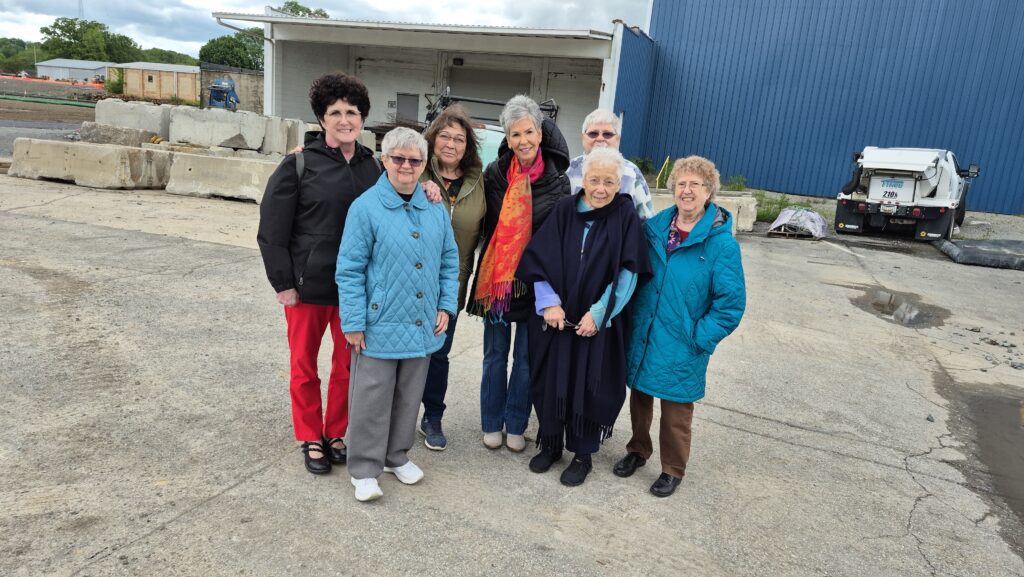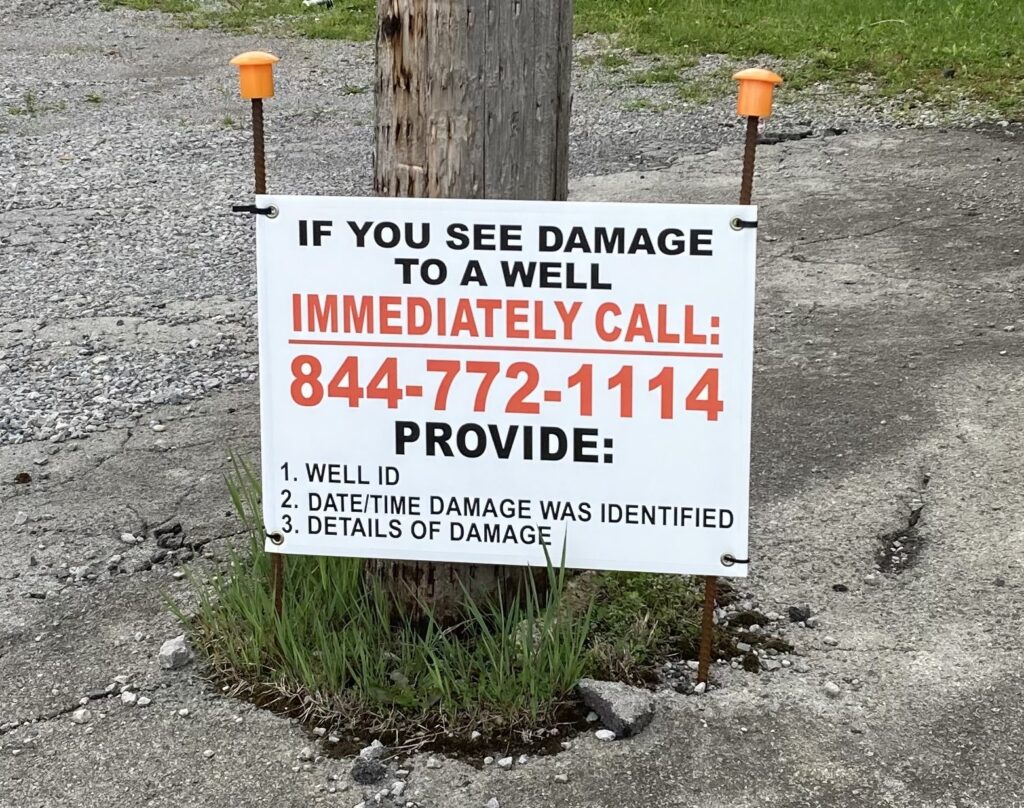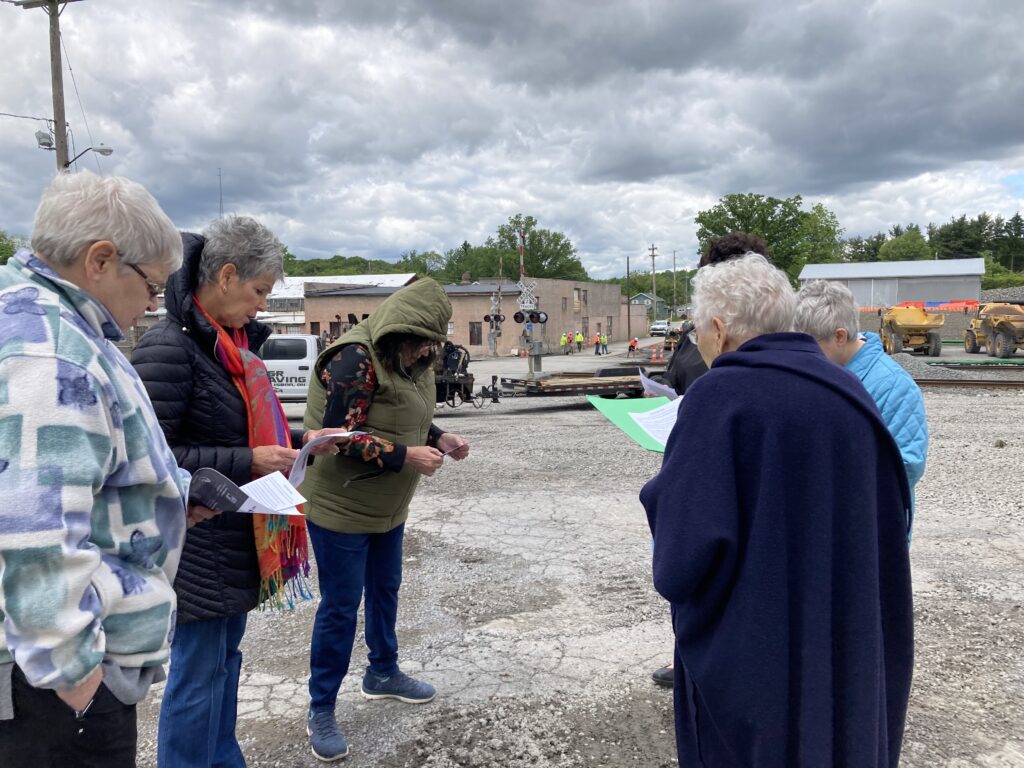By Sister Cynthia Serjak, RSM
The Sisters of Mercy of the Americas Justice Team is a co-sponsor of Pilgrims of Hope for Creation, a collaboration among 23 Catholic organizations in the United States in this Jubilee Year, when we also mark the 10th anniversary of Laudato’ Si. We are inviting sisters, associates, companions and ministries to organize local pilgrimages to places of natural beauty or environmental degradation and share their reflections on the experience. While they may happen at any time during the year, most will take place during the Season of Creation, September 1-October 4.
There was an air of normalcy as we drove into East Palestine, Ohio. A couple blocks of Market Street were closed for the annual street fair. The park was being refurbished and improved. The mayor was recently re-elected. We four pilgrims were greeted by the noon siren that sent workers home for lunch.
It has been more than two years since a train loaded with toxic chemicals derailed and devasted the village of East Palestine in what many have called the worst environmental disaster in our country’s history. Recently I traveled with three sisters on a pilgrimage from Pittsburgh to East Palestine to see and hear for ourselves how the people and the environment are doing. I have a special interest since the village was home for the first 18 years of my life. It was a good place to grow up, and I carry it in my heart during this difficult time.
We were welcomed by four women from the Catholic parish of St. Jude, two of whom live just outside the evacuation area. We were treated to lunch at the local church, Our Lady of Lourdes. Then we asked the women to tell us about their experiences.

The stories poured out about being jolted awake in the middle of the night by multiple sirens. They remembered seeing, smelling and feeling the thick black smoke that enveloped the town. They recalled the fear and uncertainty about whether to leave their homes and the sense of worry for family, friends, neighbors and businesses.
It was cold and very windy as we left the church and went to the site of the spill. Standing by the huge blue building that is still sealed and unfit for humans, we heard about polluted streams and dead fish and watched the workers doing remedial work in the area around the tracks.

These are strong reminders that all is not well. A sign near the tracks has this message: “If you see damage to a well, immediately call.” Some people are still sick; others worry for their children and their elderly. Some who left have not moved back. They may never return. The $600 million in payments to the residents and businesses that were impacted have been approved, but some are being held up by appeals.
Railroad personnel is changing; the new folks did not experience the spill nor do they share the same sense of responsibility for its toll on the community. But two years of clean-up can’t erase the scars of the trauma, nor can they promise a safe future.
Yet the women we spoke with are hopeful and resilient. They report that property values have not decreased as they feared, and new people are moving in. There is a rumor that a couple of new businesses are also coming to town. Those who have stayed seem committed to seeing this through.

At the site we offered intercessions for the people, the creatures and Earth itself. We sang of our hope that people can work together to ensure these kinds of “accidents” don’t happen again. We left knowing that giving these women the opportunity to reflect on their experience was valuable in itself. And now we tell the stories. We pray for the courage to be as strong and as hopeful as the folks of East Palestine, so that we can all be made healthy and whole on this our Common Home.
Editor’s note: Sister Cynthia wrote a reflection in 2023 shortly after the train derailment reflecting on the horror her hometown was facing.